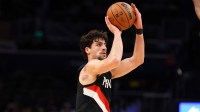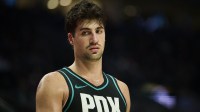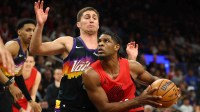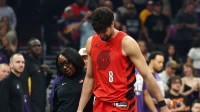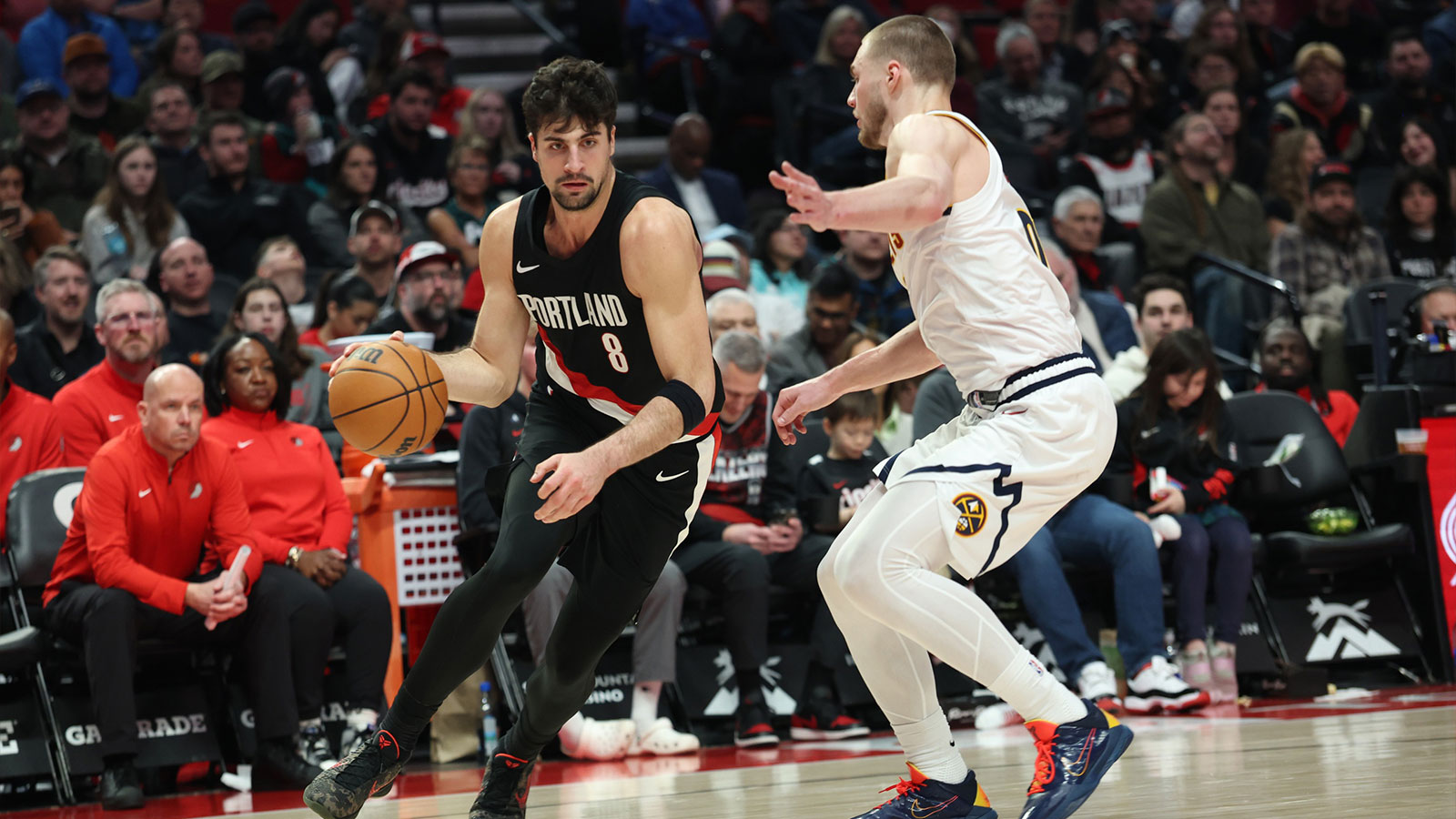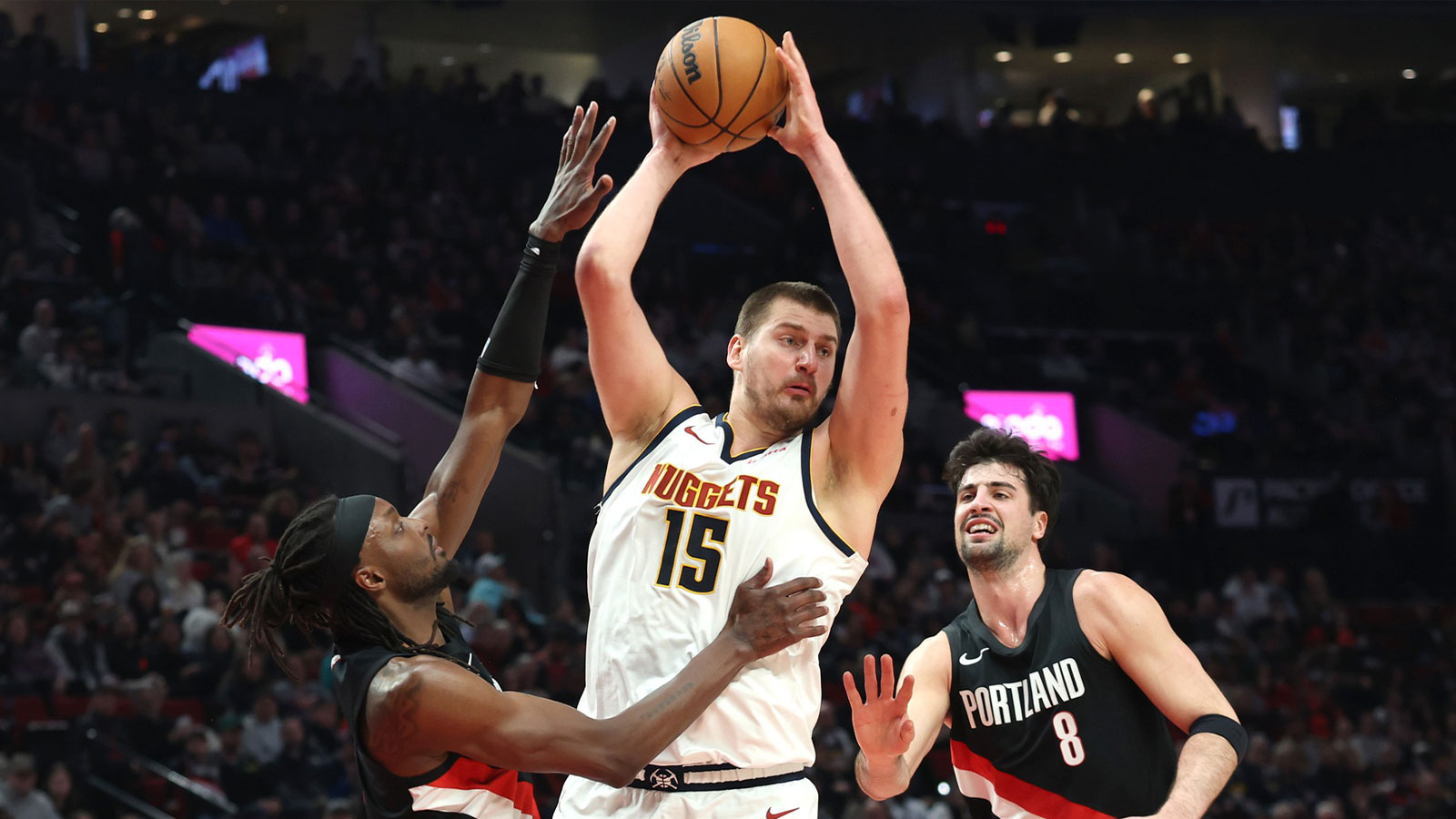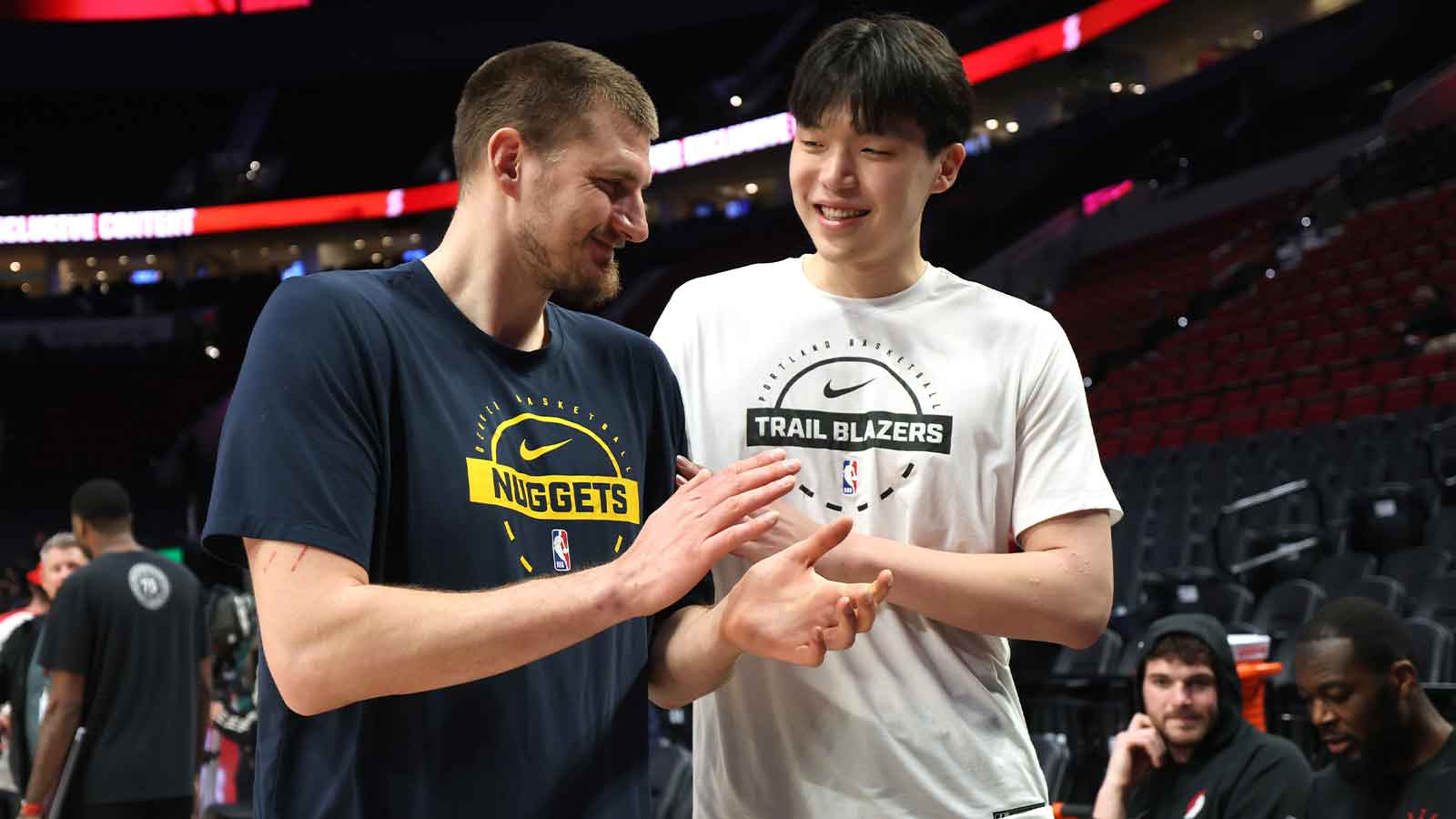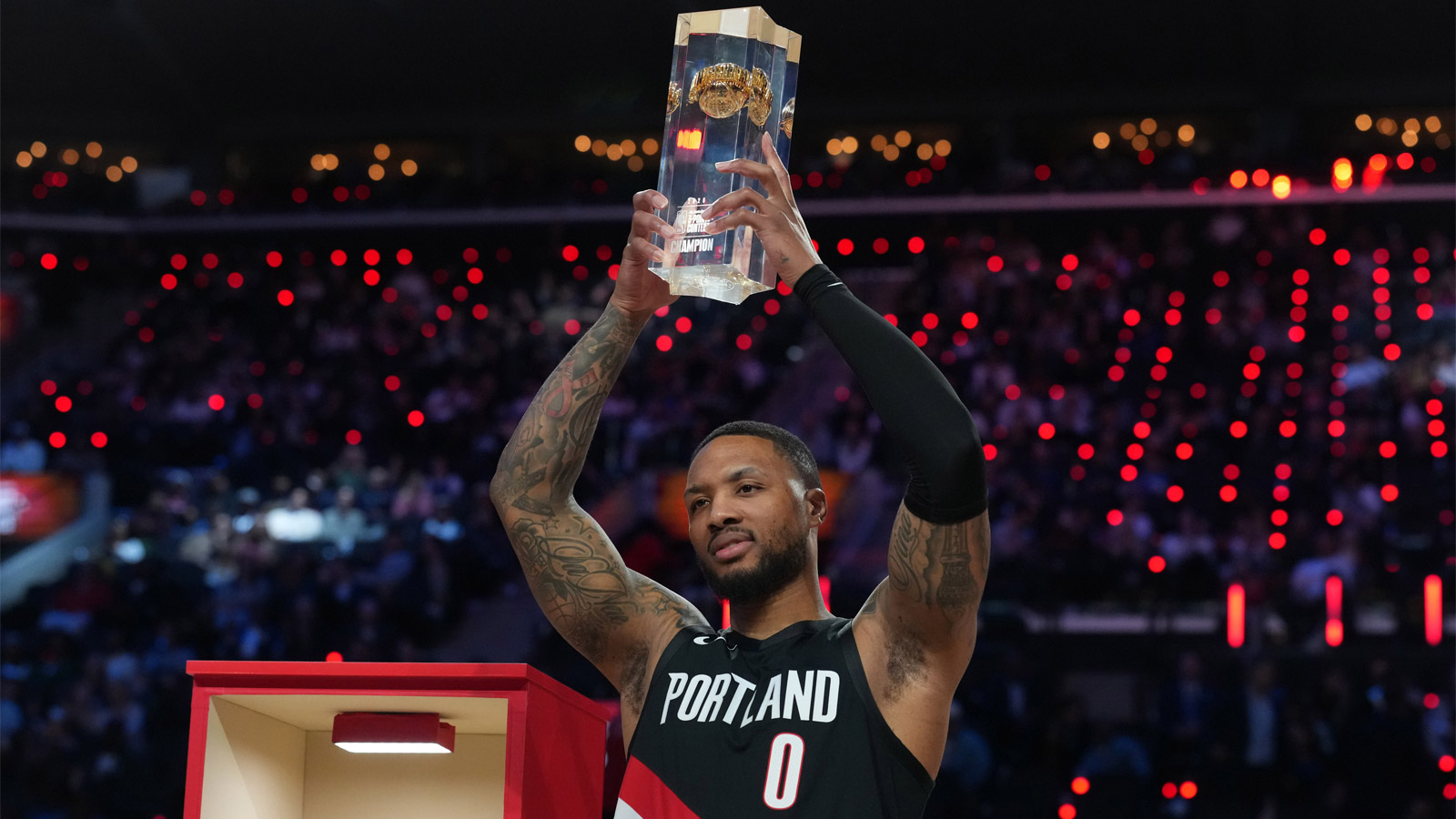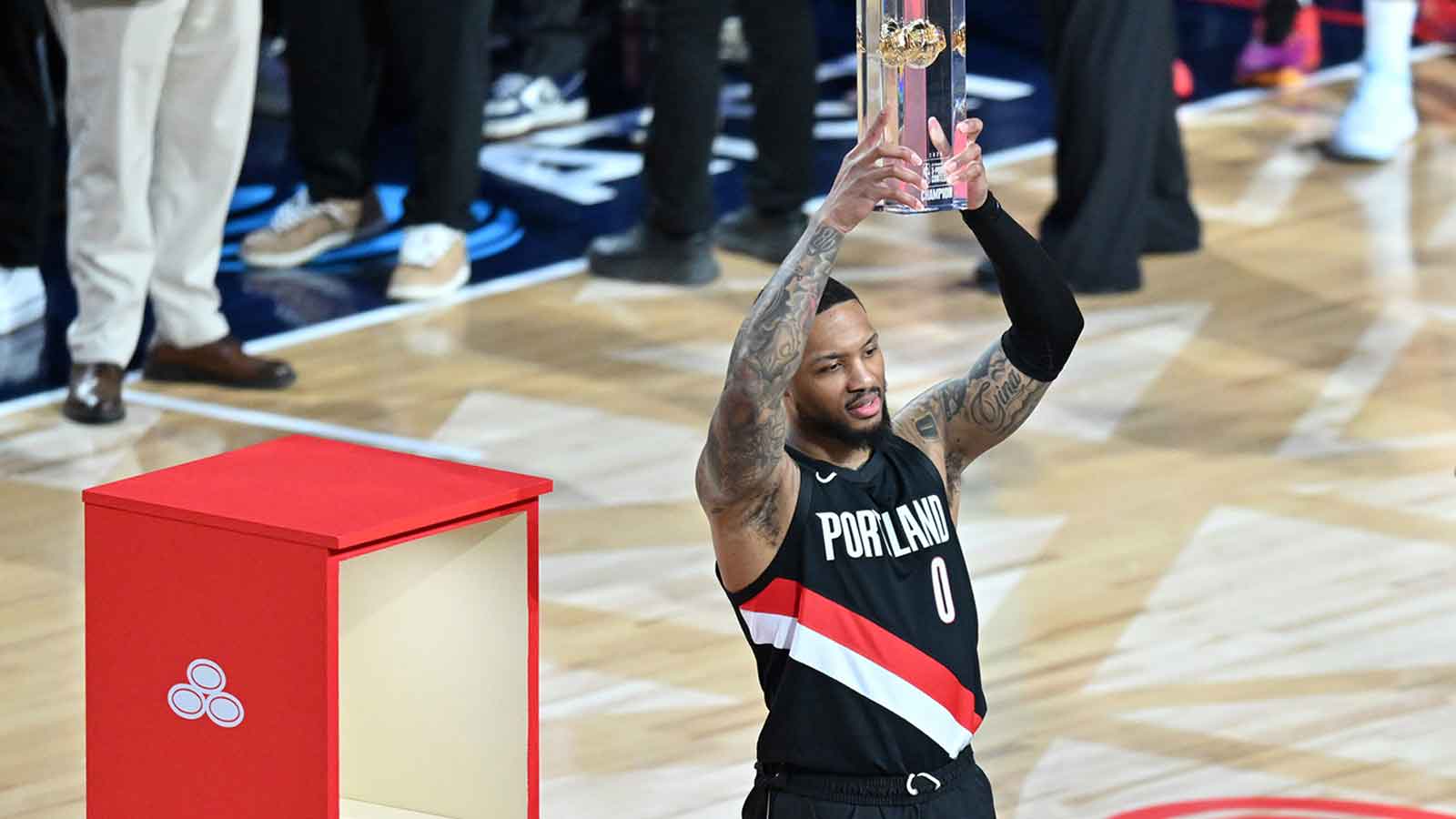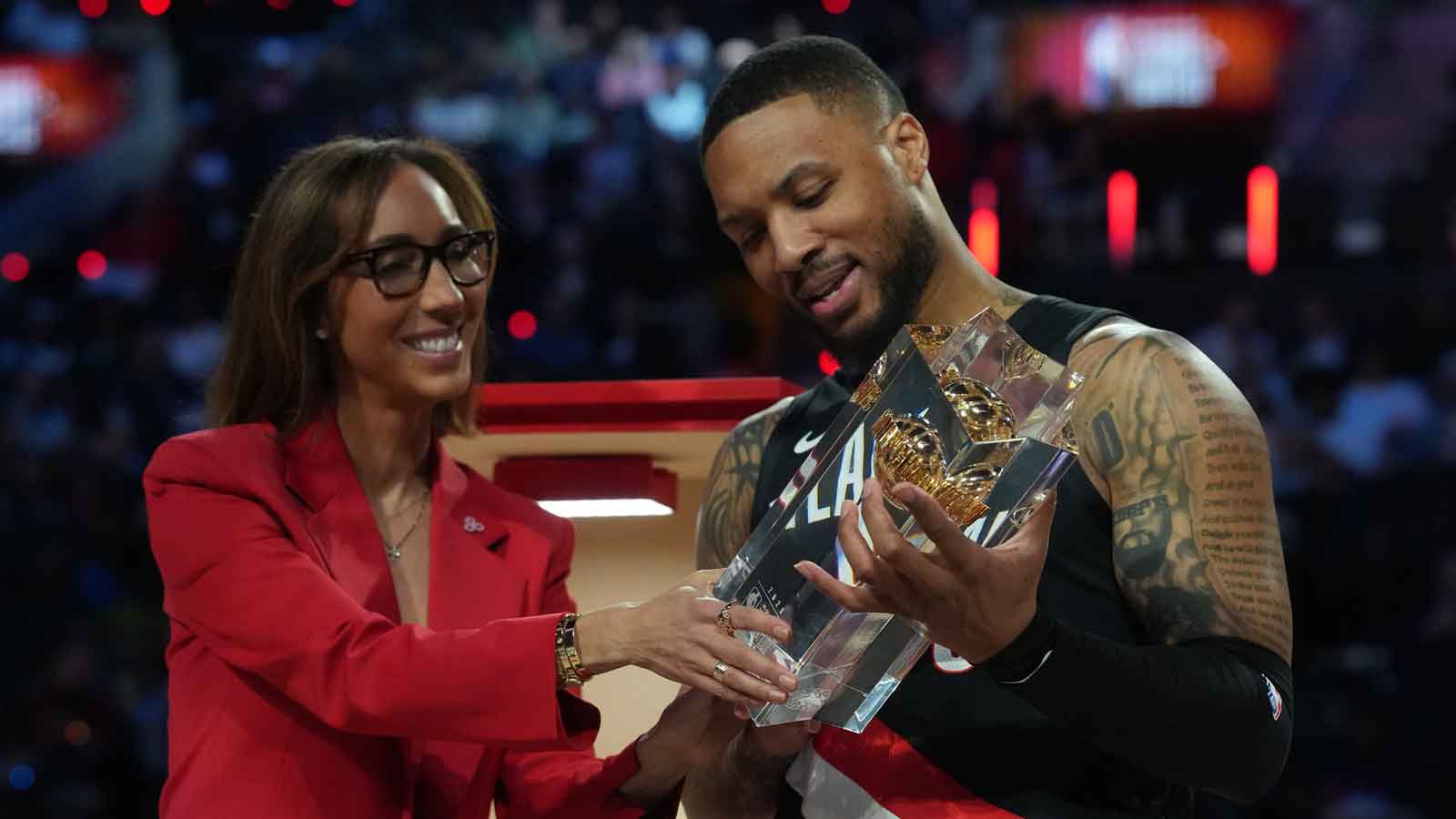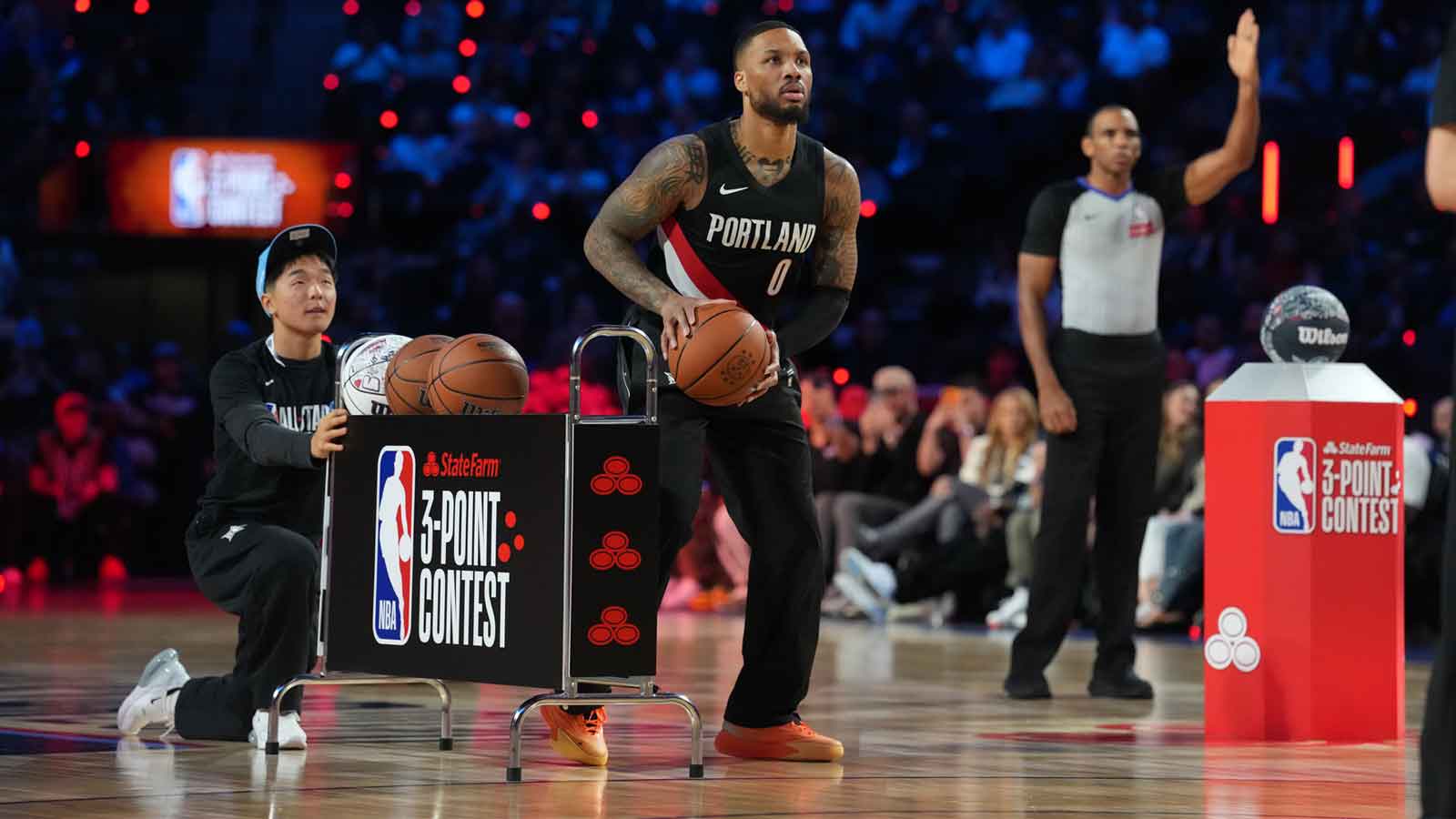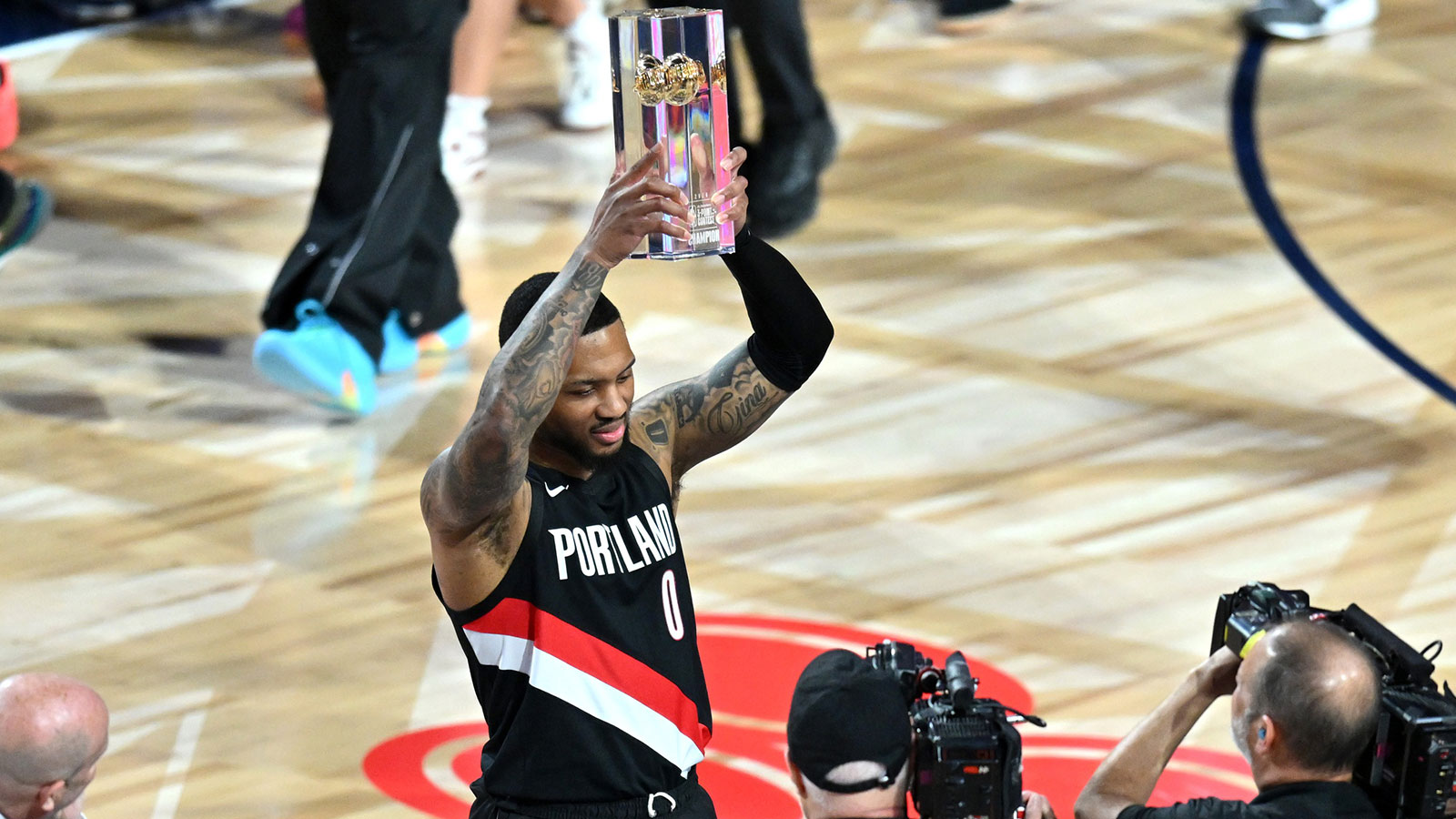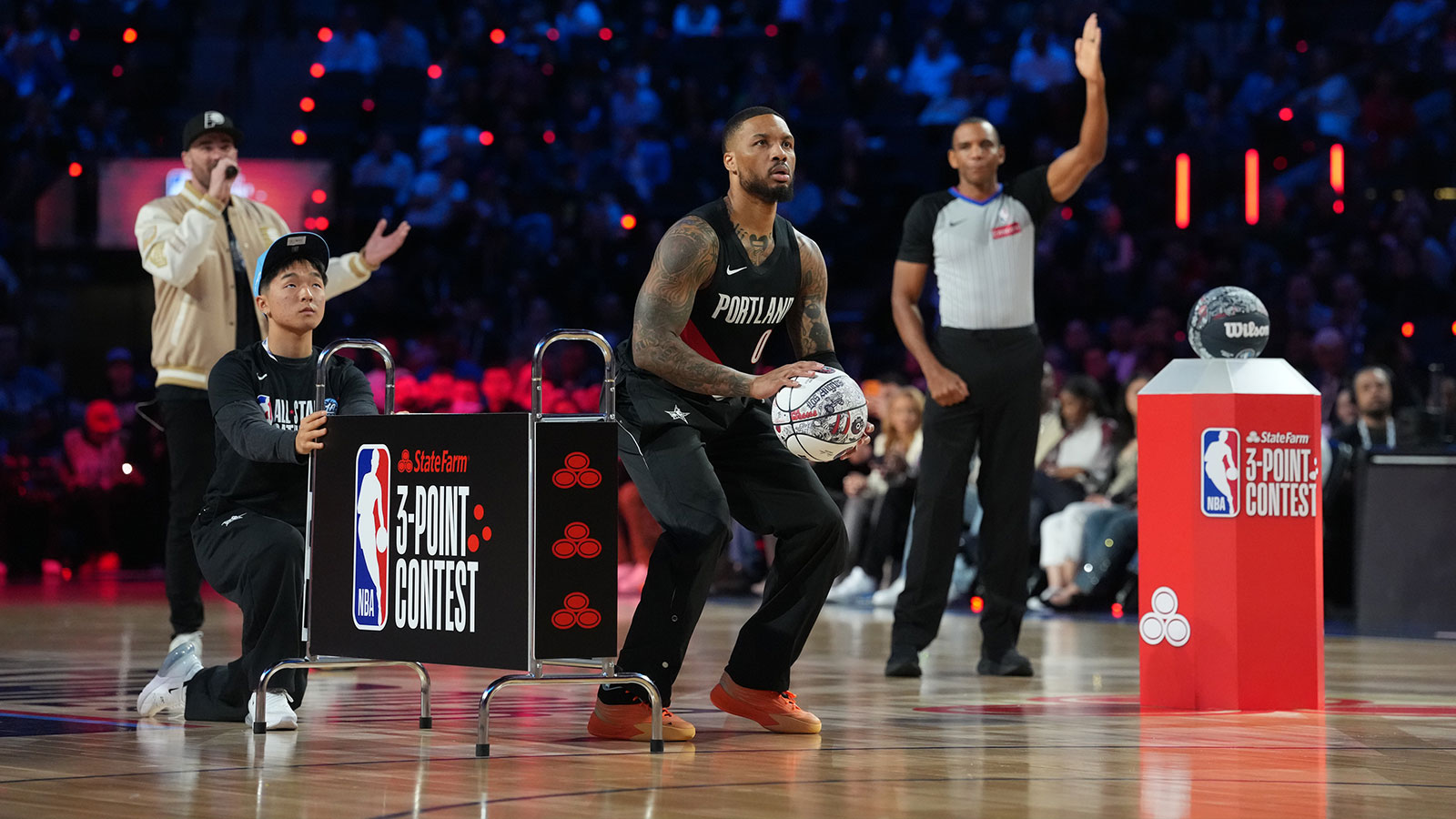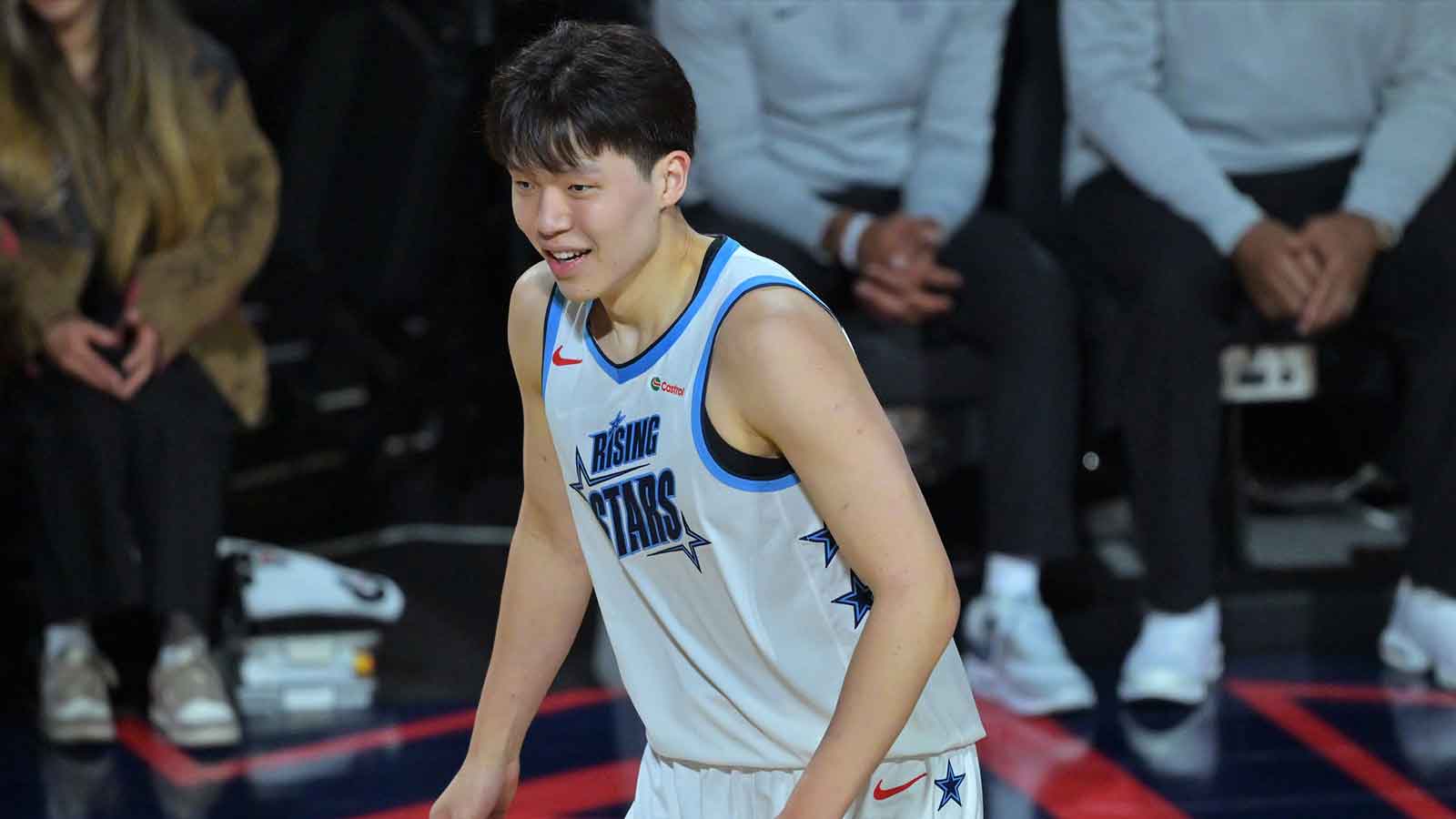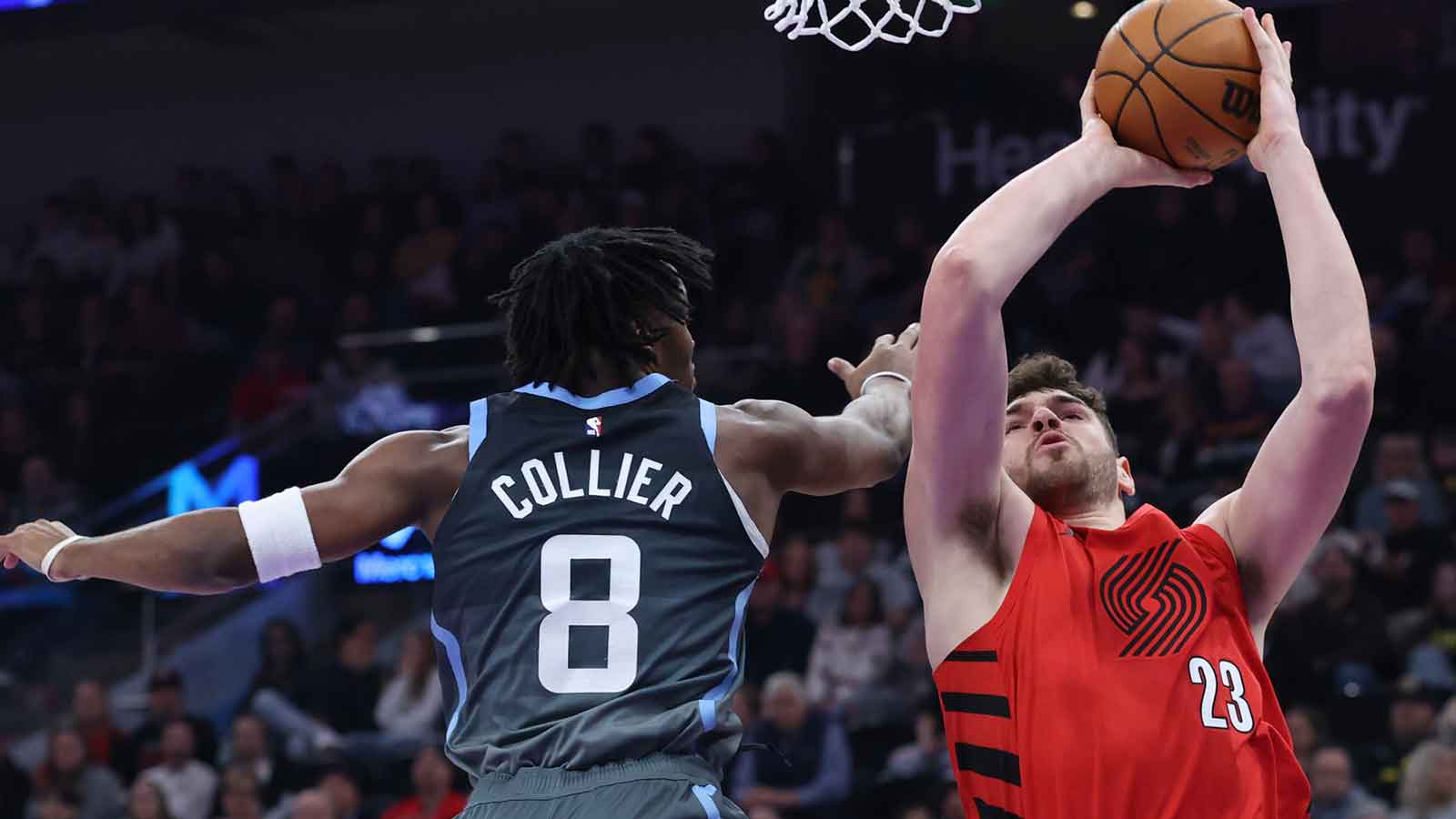Chauncey Billups touched on the pitfalls of Damian Lillard's abdominal tendinopathy well before it was officially announced the Portland Trail Blazers superstar would be sidelined for at least the next 10 days.
Lillard was clearly more affected by his nagging core injury than normal during Portland's blowout loss to the Utah Jazz on Monday. He bent over in pain on two separate occasions, gritting his teeth and grabbing his midsection, and lacked the palpable off-dribble burst he consistently showed while breaking out of his season-starting slump. Lillard needed 12 shots to score 11 points against Utah, missed his only two tries from the restricted area and got to the line just twice.
After the game, Chauncey Billups admitted to asking Lillard in real-time if he needed to sit out. Lillard declined. Still, Billups openly pondered how the Blazers could utilize a hobbled Lillard going forward, indirectly acknowledging the fragile state of his health.
“Him on the court, even if you use him as a decoy, he’s still gonna get guarded with the same coverages that he would if he was hot,” Billups said. “He’s that great of a player. I think I gotta do a better job of using him a little more wisely when he’s hampered a little.”
Playing with a limited Lillard, though, seems like a much more navigable obstacle than playing without him altogether. The numbers bear that out as much as the eye test, too, despite Lillard's early struggles artificially deflating them.
Portland's biggest challenge without Lillard on offense, unsurprisingly, will come in the halfcourt. The Blazers' halfcourt offensive rating is borderline elite with Lillard on the floor, and dips a whopping 8.7 points when he's on the bench, per Cleaning the Glass—in the 89th percentile of players league-wide.
Steph Curry is the only player in basketball who stretches defenses further up the floor than Lillard, the game-changing dynamic Billups describes above. The most telling result of all that extra defensive pressure? Portland is taking nearly 10 percent more of its shots from the restricted area with him in the game, per Cleaning the Glass, among the widest discrepancies in the league. Lillard doesn't just regularly draw two defenders, one of whom is often a shot-blocker, to the ball on the perimeter. He's also a top-tier pick-and-roll playmaker off the bounce, equally capable of hitting tight-window pocket passes, finding shooters on the weak side of the floor or bursting all the way to the rim himself.
Anfernee Simons, improved as he is in 2021-22, doesn't provide anywhere near that level of floor manipulation and overall versatility offensively. C.J. McCollum doesn't, either. The Blazers will be forced to score in different ways with Lillard out, and it won't be easy—especially if Norman Powell misses time as well or is merely slowed by his quad contusion.
Managing Lillard's absence on offense will be much less stressful if Portland buckles down on the other end. Lillard has frequently mentioned he's playing the best defense of his career this season, but there's little evidence of that assertion other than some isolated possessions of quick hands and extra efforts. Even if it's true, Lillard certainly isn't the rare caliber of perimeter defender to meaningfully impact team performance.
Portland's second-to-last ranked defense gets just a hair stingier with Lillard on the court. His -2.2 defensive RAPTOR, from FiveThirtyEight, is second-worst among team regulars.
Simons will be starting with Lillard out, but the Blazers' real “next man up” is Dennis Smith Jr. He's been impressive ever since training camp tipped off, beating out Marquesse Chriss, Quinn Cook and Patrick Patterson for Portland's final roster spot, then showing out in preseason and consistently flashing when given the chance during the regular season. Though Smith's heightened overall playmaking feel, specifically as a ball-screen operator, seems obvious, what's really popped is his defense.
Additional knee trouble has sapped Smith of the otherworldly athleticism he possessed as a teen. Still, he's bringing more activity and force on that end than anyone on the team save for Nassir Little, out himself with a sprained ankle for at least a week. Smith's tangible commitment to defense is especially evident compared to occasionally lagging intensity from the Blazers' rotation guards.
Lillard, McCollum and Simons aren't making this play.
All that said, Smith's true defensive influence will be capped by his position and role. He's still just Portland's third guard with Lillard injured, and could lose playing time to both Tony Snell and Ben McLemore if either gets hot from deep in their extended minutes. Smith, unfortunately, won't be a true defensive difference-maker.
All of the above essentially boils down to what anyone who's ever watched the Blazers already knew: Lillard's loss for at least the next four games, and who knows how many more, will make wins much more difficult to come by. The schedule won't help. The Blazers meet the bottom-dwelling San Antonio Spurs at home on Thursday, then host the Boston Celtics and Golden State Warriors before a final matchup with the LA Clippers. Their next five games after Lillard's 10-day window for “re-evaluation” passes come against teams that will definitely make the playoffs or just miss them.
It's gut-check time for Portland. Lillard's absence isn't just an opportunity for McCollum to re-start his push for an All-Star berth, Jusuf Nurkic to prove he deserves a steadier diet of post touches or any other player to further cement their worth. It's a chance for Billups' more egalitarian, motion-heavy offense and aggressive, help-based defense to make the Blazers' whole bigger than the sum of their parts.
If none of that comes to pass? Portland, mired in play-in tournament range after a chaotic start to 2021-22, will no doubt fall farther down the Western Conference standings.




